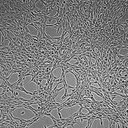Rosmarinic Acid and Melissa officinalis Extracts Differently Affect Glioblastoma Cells.
Palavras-chave
Resumo
Lemon balm (Melissa officinalis L.) has many biological effects but especially important is its neuroprotective activity. The aim of the study is to produce different extracts of Melissa officinalis and analyse their chemical composition and biological properties on rat glioblastoma C6 cells. Results revealed that rosmarinic acid (RA) is the predominant compound of lemon balm extracts. RA has cytotoxic effect on glioblastoma cells (LC50 290.5 μM after the incubation of 24 h and LC50 171.3 μM after 48 h). RA at concentration 80-130 μM suppresses the cell proliferation and has an antioxidant effect. 200 μM and higher concentrations of RA have a prooxidant effect and initiate cell death through necrosis. The aqueous extract of lemon balm is also enriched in phenolic compounds: protocatechuic, caftaric, caffeic, ferulic, and cichoric acids and flavonoid luteolin-7-glucoside. This extract at concentrations 50 μM-200 μM RA has cytotoxic activity and initiates cell death through apoptosis. Extracts prepared with 70% ethanol contain the biggest amount of active compounds. These extracts have the highest cytotoxic activity on glioblastoma cells. They initiate generation of intracellular ROS and cell death through apoptosis and necrosis. Our data suggest that differently prepared lemon balm extracts differently affect glioblastoma cells and can be used as neuroprotective agents in several therapeutic strategies.


